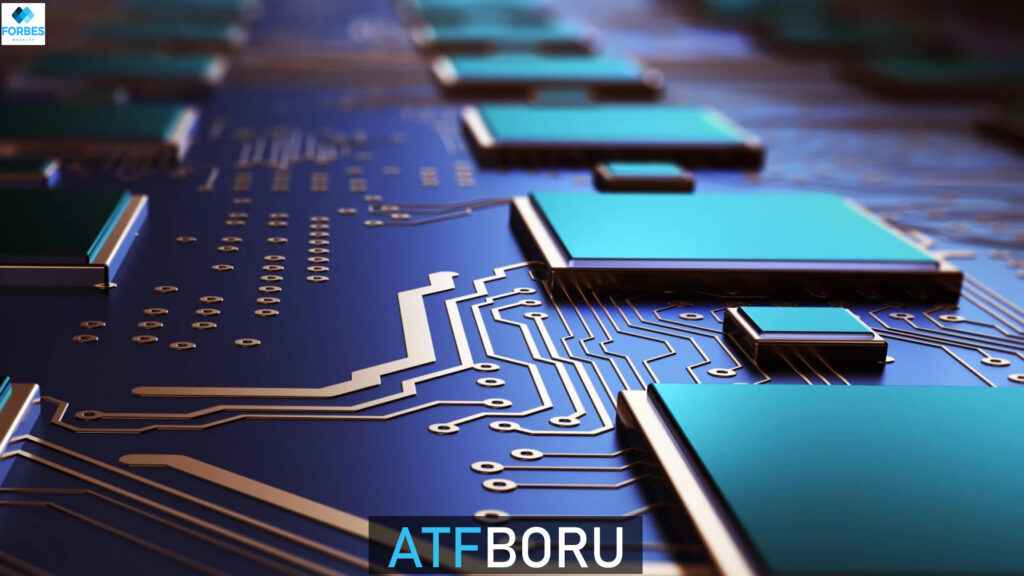Introduction
AI has moved from being an abstract concept into an influence on all areas of the contemporary world. Using cars without drivers, tracking, analyzing, and making recommendations with regard to viewing movies or programs, AI is gradually entering our everyday lives. Due to the advancement of ATFBORU AI technologies, many doors have been created in the industrial, business, and individual spheres. But how does this look in the future? Thus this article seeks to discuss the topic artificial intelligence-what it is, where it is now, what concerns it raises and possibly, what the future holds.
What is Artificial Intelligence and what does it entail?
AI ATFBORU is a subfield of computer engineering that deals mainly with the development of software that uses natural intelligence. It consists of systems that can carry out operations that would normally be accomplished using conventional human courses like learning, problem solving, reasoning and decision making etc. AI can be classified into two main types:
Narrow AI (Weak AI)
Specific AI ATFBORU is a type or category of AI systems that are built to solve a single task or a cluster of tasks. These systems work in a supervised domain, and even if it can perform all these tasks optimally, it does not have common sense intelligence. Examples of narrow AI ATFBORU are voice recognition of Siri, Alexa, and interaction utilities like a chatbot, or just the recommendation interface utilized by Netflix.
General AI (Strong AI)
General AI as a concept is a higher level of Artificial Intelligence ATFBORU that can perform any human cognizing work. While, narrow AI ATFBORU is designed to solve specific problems in specific domains, general AI would have the capability to learn and reason about any situation, and can even fill in the gaps on its own in case of learning from the experience. So far, specific AI is still only a concept as scientists strive to create machines with capabilities close to human thought and comprehensive comprehension.
The Current Impact of AI
AI ATFBORU is already on the way to revolutionize many industries at present. Here are some of the areas where its impact is most prominent:
Healthcare
AI ATFBORU is revolutionizing the healthcare industry through increased chances of diagnosis and treatment. Medical images can be analyzed using machine learning to search for symptoms of diseases including cancer at early stages and, decision making support systems can be powered by artificial intelligence to aid doctors in making decisions based on the patient’s genetic history. In drug development AI is being applied to bring new treatments at much faster rates adding efficiency to a crucial part of the process.
Transportation
Self-driving cars are one of the most discussed subjects in the conditions of using AI ATFBORU. Self-driving cars incorporate machine learning to analyze information from many gadgets, including sensors and cameras, to move, decide, and prevent other items. The technology is still very new but holds great promise as a means of decreasing the rate of accidents, relieving traffic congestion and increasing the fuel efficiency of cars. AI is also being used in the line of logistics and supply chain to make it easier and cheaper with the shortest route possible.
Business and Marketing
Artificial Intelligence is playing an expanded role in improving business interactions with their clients and operating systems. ATFBORU Automated, AI-based chatbots are now syndicated for customer help, with prompt replies and problem-fixing at any time. In marketing AI corrects the assumption of consumer behavior and it also analyses the audience and shows them advertisements that would lead to a successful sale. Also, AI is applied in efficiency enhancing, cost cutting, and optimising decision making based on big data.
Education
Thus AI ATFBORU is entering the field of education at a very fast pace. In doing so, EdTech powered by AI enables smaller groups and even individual learners to be taught in a way that allows them to grow as needed, at their own learning rate. Intelligence can hеlp studеnts themselves or assist teachers early in teaching lеssons bought by the schоol while also being able to identify where students need help with and then focus on that matter. Also in administrative areas such as grading of assignments and monitoring of students’ attendance, AI has found its way in by reducing the load that teachers have to handle leaving them with more time to teach.
Lessons Learned

As much as the advent of AI ATFBORU brings tremendous opportunities the same comes with corresponding risks, issues and ethical questions which requires his/her attention.
Job Displacement
The topic on robots taking jobs is one of the most popular topics, which is tightly connected with the concept of AI ATFBORU. Thus, it can cost jobs through application of automation powered by Artificial Intelligence to undertake repetitive work in industries such as manufacturing, retailing, and transportation industries. Since peers in these fields will be ‘replaced’ by AI, questions arise as to the future of workers in the traditional industries.
Bias and Fairness
AI systems depend very much on the input and output available to the systems to learn from. This means that if the data used in building AI ATFBORU algorithms is biased or contains the wrong data then these systems will also be biased hence unfair in their operations. For instance, facial recognition innovation has seen that its algorithms work well in identifying darker skin people inadequately. In order to have fairness within artificial intelligence more focus must be given to the dataset or data as well as the algorithms that run on such artificial intelligence systems.
Privacy Concerns
Most of the AI ATFBORU technologies require a big pool of data for better functioning which creates problems of data privacy and protection. Since relations between people and AI systems involve personal data gathering, threats of data leakage or misuse are real. Businesses have to observe specific data protection laws to protect users’ data and gain the population’s trust in AI.
The Future of AI
There is a bright future as far as artificial intelligence ATFBORU is concerned. It is anticipated that as the technologies of AI become more developed, it is going to penetrate deeper and influence industries, economy and society even more. Some potential developments include:
Developments in Import and General AI
While it is still a long shot to talk of achieving general AI, scientists and engineers are equally striving towards the achievement of such systems that mimic human intelligence. Even in the near future, AI can be capable of reasoning, solving problems and can come up with understanding in a manner close to human thinking. It would be possible to build intelligent autonomous agents that could help in different branches of science, and in space exploration, for example.
AI in Creativity
AI ATFBORU is also performing well in fields such as music, art and writing. Recently, art and music composed by AI have also become relevant, with the help of which algorithms create objects that are no less different from works of other people. If AI has complicated the set of relations between man and art, it means that it can expand the role of an artist and turn into an active participant in the development of art.
Human – Artificial Intelligence Partnership
The future that is AI is not about machines dominating over humans as many may make it seem. AI will therefore be employed as an instrumentality to reinforce human skills and complement decision-making processes. In medicine, business, and education, AI is going to improve individual competency levels so that every person could make better decisions and solve problems faster and more effectively.
Conclusion
There is no doubt that in the future the development of Artificial Intelligence ATFBORU will become one of the cornerstones. As with any great innovation it holds tremendous potential however it comes with some significant ethical social and economical concerns that should be addressed. The direction in the development of AI is quite clear, it will involve a collective effort of subject-matter experts, policy makers and corporate-world players to make these intelligent technologies a force for good.
After the calculation of prospect scores, the following Frequently Asked Questions are usually posed.
1. What’s the difference between natural intelligence and artificial narrow intelligence?
Narrow AI is intended to work for certain tasks, for example voice recognition or recommendation engine whereas general AI will be able to perform any task that require intelligence of human beings.
2. In what ways does AI influence the provision of healthcare?
Some of the main fields where AI is most effective are disease detection, individual treatment strategies, and drug design. In addition, patients’ care and medical diagnosis and imaging also benefits from better efficiency and accuracy.
3. Will AI replace jobs?
AI will replace several occupations, resulting in unemployment in some areas of a nation’s economy. But it often yields new professions such as an artificial intelligence researcher, software engineers, and data analyst.
4. How can AI be biased?
AI learns from data and therefore AI systems can be developed from biased data or reflect the bias of its trainers. When the data used to train the AI system is either unfair or prejudiced in nature then the output of the system will also be similar since the systems solely based on mathematical algorithms do not have intrinsic strength of differentiation between right and wrong, fair and unfair, or just and unjust.
5. There are doubts if agents with artificial intelligence are capable of keeping our private communications private.
One major issue with AI systems is that many of the systems demand a considerable deal of data, entailing issues of datum security. Without proper protection, some information more personal than others could easily be compromised or abused.


